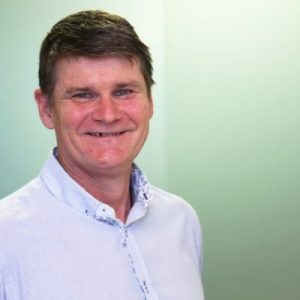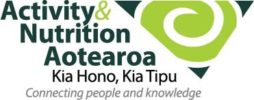08 May Shayne Nahu: ANA Board Chair
Shayne Nahu (Te Arawa, Tainui, Irish) chairs the ANA board and is the wellbeing and advocacy manager at the Cancer Society of New Zealand.
I’ve been working in public health for around 30 years. It’s still hugely challenging; there are still so many opportunities to make a difference.
When I left school I went to university without a clear idea of what I wanted to do. I ended up studying psychology and sociology because I was interested in them, but I came out with a really good perspective on the things we do and why we do them. On returning home after Uni, I eventually got a job as a dormitory assistant at the children’s health camp in Rotorua. I ended up working there for about four years and it really made me appreciate the influence that environment has on people’s behaviours. Children would be referred to the camp for six weeks, often because they had social and behavioural problems. There was a real cycle. Kids would push the boundaries in the first week, then there would be four weeks of stable life, then in the last week they’d be getting ready to go home. I could see then that sending these kids back to exactly the same environment that they’d come from meant there wouldn’t be any long-term change. The kids were the symptom, not the problem.
My time there really solidified the academic theory stuff that I’d been doing. Then luck played a part. My sister, who was then a nurse in Gisborne, told me that the drug and alcohol unit was looking for a health promoter. No one knew what that was, but I got all excited about it and applied. I’ve been working in public health ever since, in various roles within the Ministry of Health, with city councils, and DHBs. I’ve been at the Cancer Society for the last four and a half years. I really value the partnerships and relationships that I’ve built up over time.
The challenge that we’ve always had in public health is how we talk outside of ourselves. There are lots of good things happening in our sector, but I don’t think we’re able to articulate clearly enough how all these different bits of work are needed to achieve the same goal. We can get a bit fixated on policy change. Policy change is important, but we only achieve that if there’s political will and there’s only political will if there’s community support. You only get that through engaging with communities. It can be difficult to identify successes in public health if you’re only measured on legislative change.
You need patience to work in public health, and to be able to celebrate successes along the way, even if they’re small, because it’s a long game. You need to understand evidence, and how to appreciate the nuances and limitations of research. Communication is key, especially being able to convert academic speak into succinct messaging and everyday korero. We need to understand how communities, talk, engage and influence politicians, and we need to maintain engagement at whanau and community level. Understanding how social media works is really important now.
I think it helps if you can work in an area that you have a passion for, because that helps sustain you through the heartache. But at the same time, you can’t be too personally aligned with it because it can burn you out if you don’t get the progress you want. It’s a real balancing act.
With ANA, I think our real strength is around nutrition. I think we’re seen as a repository of credible information and knowledge in that area, so the sharing of that among the workforce is really important. We need to be able to take our knowledge about nutrition and provide it to help other sectors, like physical activity or mental health. We need to show other sectors that we have the knowledge and expertise to help them achieve their goals and improve public health overall. I think there’s real power in reaffirming our knowledge. That’s a really important role for us.
ANA May 2020

